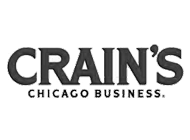Learn About Colonoscopy Screenings
Please note: The information on this website is provided by
ColonoscopyAssist™ for educational purposes only. It is not a substitute for
professional medical care or advice.
What happens after a colonoscopy
- You will stay in a recovery room for observation until you are ready for discharge.
- You may feel some cramping or a sensation of having gas, but this quickly passes.
- If medication has been given, a responsible adult must drive you home; avoid alcohol, driving, and operating machinery for 24 hours following the procedure.
- Unless otherwise instructed, you may immediately resume your normal diet, but we recommend you wait until the day after your procedure to resume normal activities.
- If polyps were removed or a biopsy was taken, avoid taking aspirin, products containing aspirin, or anti-inflammatory drugs (such as ibuprofen [Advil®, Motrin®], naproxen [Naprosyn®] or indomethacin [Indocin®]) for two (2) weeks after the procedure to help decrease the risk of bleeding; you may take acetaminophen (such as Tylenol®) if needed.
- If you are taking Coumadin®, Plavix®, Ticlid®, or Agrylin®, the physician performing your colonoscopy will advise you when it is safe to resume your blood thinners.
- If a biopsy was taken or a polyp was removed, you may notice light rectal bleeding for one to two days after the procedure;
large amounts of bleeding, the passage of clots, or abdominal pain should be immediately reported.







